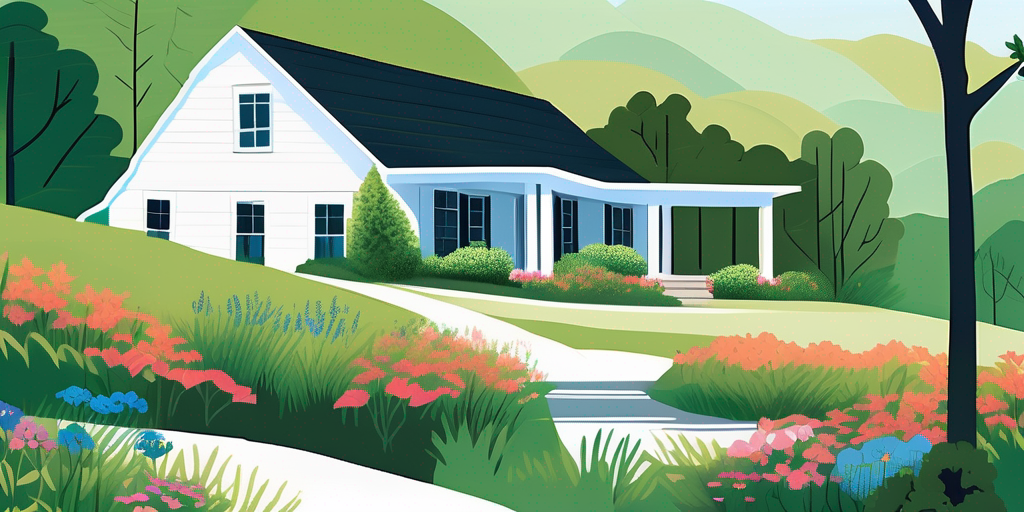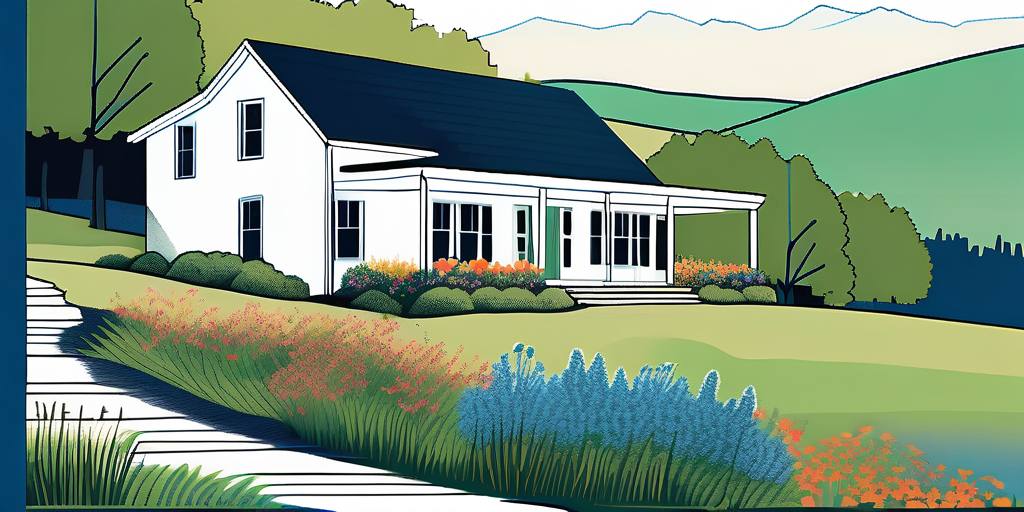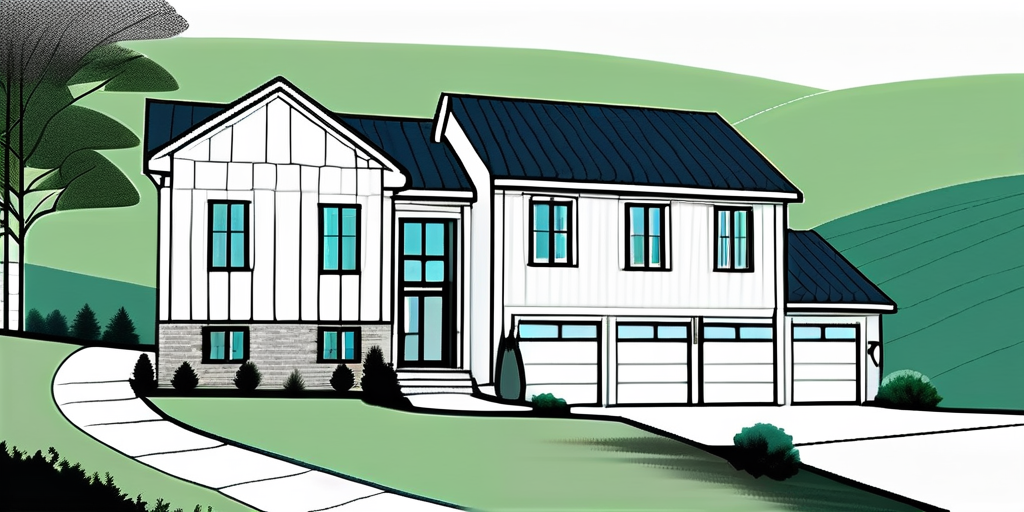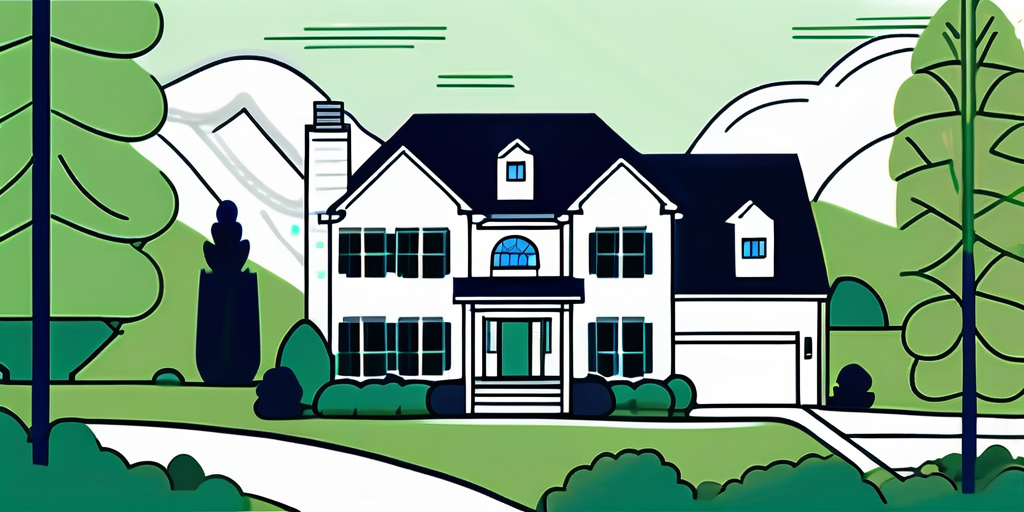
When it comes to finding your dream home, many people are drawn to the idea of a custom-built home. In Tennessee, where the landscape ranges from rolling hills to vibrant cityscapes, the allure of personalization in home design is stronger than ever. This article dives into the many benefits of custom-built homes and why they may be the perfect choice for you.
Before jumping into the world of custom-built homes, it’s important to understand exactly what they are. Unlike traditional homes that you might find on the market, custom-built homes are created from the ground up according to your unique specifications.

A custom-built home is a property designed specifically for you by either a builder or an architect. The design process involves input from the homeowner at every stage, from selecting the floor plan to choosing fixtures and finishes. This tailored approach ensures that the house meets not just your aesthetic desires, but also your functional needs.
Moreover, custom homes can vary significantly based on the homeowner's preferences. Whether you want an open-concept layout or a more traditional design, the options are virtually limitless. This level of customization is an intrinsic part of what makes custom homes so appealing. Additionally, homeowners can incorporate sustainable building practices and energy-efficient technologies, allowing them to create not only a beautiful space but also an environmentally friendly one. Features such as solar panels, energy-efficient windows, and smart home systems can be seamlessly integrated into the design, providing long-term savings and comfort.
The journey to creating a custom-built home starts with a vision. Homeowners typically begin by sketching out ideas, collecting inspiration, and determining a budget. Once you have a clear idea of what you want, it’s time to find a suitable lot on which to build.
After securing land, you'll work with an architect or designer to finalize blueprints tailored to your needs. This is usually followed by choosing a reputable builder who specializes in custom homes. Then comes the actual construction phase, where your vision starts to come to life, and you even have the opportunity to check in regularly to make adjustments if needed. Throughout this phase, communication is key; regular meetings with your builder can help ensure that the project stays on track and that any unforeseen challenges are addressed promptly. Homeowners often find joy in visiting the site as it transforms, witnessing the framing go up, the roof being installed, and the interior spaces taking shape, all while imagining their future life in the new home.
Why go through the effort of building a custom home? There are numerous advantages that come with this personalized option, making it worthwhile for many homebuyers.
One of the most enticing benefits of custom-built homes is the ability to create a space that truly reflects your personality and lifestyle. This means you can select everything from the exterior appearance to interior layouts and materials used. Imagine your dream kitchen with your ideal layout—a space you can genuinely call your own!
This level of personalization not only makes for a unique living experience but can also be an extension of your values and interests, whether you favor eco-friendly materials or specific architectural styles. For instance, if you are passionate about cooking, you might choose to include a spacious island, high-end appliances, and ample storage solutions, ensuring that your kitchen is not just functional but also a joy to work in. Additionally, you can incorporate elements that reflect your hobbies, such as a dedicated art studio or a home office designed to inspire creativity.
When you opt for a custom-built home, one of the key advantages is the quality assurance it provides. Many custom builders pride themselves on using high-quality materials and leveraging skilled craftsmanship, as their reputation hinges on their work. This attention to detail typically results in a more durable, reliable home.
In contrast, when purchasing a pre-built home, the materials used may not always meet your standards. Agencies might prioritize cost-efficiency over quality, making a custom-built option a smarter long-term investment. Furthermore, working closely with your builder allows you to make informed decisions about the materials used, ensuring that they align with your preferences for aesthetics, durability, and maintenance. This level of involvement can lead to a home that not only looks beautiful but stands the test of time, minimizing the need for repairs and renovations in the future.
Another consideration that has gained traction among homeowners today is energy efficiency. With a custom-built home, you can incorporate modern technologies and eco-friendly materials from the very beginning. This might include energy-efficient windows, sustainable flooring, and the latest HVAC systems.
By implementing these features, you're not only doing your part to help the environment but also reducing future utility bills. Over time, these savings can be significant, making your investment even more worthwhile. Additionally, many custom builders are well-versed in the latest green building certifications, such as LEED or Energy Star, which can further enhance the sustainability of your home. Opting for solar panels or rainwater harvesting systems can also contribute to a more self-sufficient lifestyle, allowing you to enjoy the benefits of modern living while minimizing your ecological footprint. This forward-thinking approach not only elevates your home's value but also positions you as a responsible steward of the environment, appealing to like-minded individuals in your community.
Tennessee has seen a growing popularity of custom-built homes in recent years, driven by a strong economy and a diverse population eager for tailored living spaces.
The custom home market in Tennessee has taken on unique trends, emphasizing both modern and traditional designs. Rural areas are increasingly seeing the development of custom homes that blend seamlessly with nature, making use of local materials and organic design principles.
Meanwhile, urban areas like Nashville and Memphis showcase an inclination toward contemporary architecture equipped with smart home features. Homebuyers are also favoring open-concept floor plans, outdoor living spaces, and multi-functional rooms, reflecting current lifestyle demands.
In addition to these architectural preferences, there is a growing emphasis on sustainability within the custom home market. Many builders are incorporating eco-friendly materials and energy-efficient technologies, such as solar panels and high-performance insulation, to minimize environmental impact and reduce utility costs. This trend not only appeals to environmentally conscious buyers but also aligns with Tennessee's increasing focus on green living and conservation efforts.
When considering a custom-built home, it’s crucial to keep in mind the financial aspects. Generally, the average cost per square foot for a custom home in Tennessee can range widely based on location, materials, and builder reputation. While it may appear more expensive upfront, many homeowners find the long-term value worth the investment.
Moreover, factors such as land acquisition, design choices, and construction quality help in determining the final price. Being well-informed about these elements can help you budget effectively as you embark on this journey.
Financing options also play a significant role in the overall cost of custom-built homes. Many buyers explore various mortgage products, including construction loans that allow for phased disbursement of funds as the building progresses. Understanding the nuances of these financing options can empower buyers to make informed decisions that align with their financial goals. Additionally, prospective homeowners should consider the potential for increased property value over time, particularly in rapidly developing areas, making custom homes not just a personal sanctuary but also a smart investment for the future.
Finding a trustworthy builder is key to making your dream home a reality. The builder you select can significantly impact the overall quality and experience of building your custom home.

When searching for a custom home builder in Tennessee, consider their track record, level of experience, and portfolio of past projects. Recommendations or reviews from previous clients can also provide insightful information about their craftsmanship and reliability.
Furthermore, it’s advisable to meet potential builders in person to gauge their communication style, responsiveness, and willingness to hear your vision. A good builder will not only be skilled but will also take the time to listen and collaborate on ideas. Look for builders who are members of reputable industry associations, as this can be a sign of their commitment to maintaining high standards and staying updated on the latest building practices and regulations.
Another important factor is the builder's understanding of local zoning laws and building codes, which can vary significantly across different regions in Tennessee. A knowledgeable builder will navigate these regulations smoothly, ensuring that your project adheres to all necessary guidelines, thus avoiding potential legal issues down the line. This expertise can save you time and money, allowing you to focus on the creative aspects of your custom home.
Before making your decision, it's essential to ask the right questions to your potential builder. Inquire about their experience in building custom homes, their approach to managing projects, and how they handle changes during the construction process.
Additionally, you should ask about their warranty and aftercare policies. A reliable builder will stand by their work and offer support even after the project is completed. It's also wise to discuss their payment structure and timeline expectations upfront. Understanding how and when payments are made can help avoid misunderstandings later on and ensure that both parties are aligned throughout the construction journey.
Moreover, consider asking about their preferred subcontractors and suppliers, as these relationships can greatly influence the quality and efficiency of the build. A builder with a strong network of trusted professionals can often secure better materials and services, which can enhance the overall outcome of your home. Lastly, don't hesitate to request references from past clients, as speaking directly with them can provide you with valuable insights into the builder's reliability, work ethic, and ability to meet deadlines.
Financing a custom-built home can be a little different than buying an existing home, and understanding the financing options available can empower you in making informed decisions.

Home construction loans are specifically designed for building new homes. These loans usually work on a draw schedule, allowing you to pay the contractor at different stages throughout the building process. This differs from a traditional mortgage, which funds the entire purchase upfront.
It's essential to find a lender familiar with construction loans, so you can navigate the process smoothly. Compare different options, interest rates, and repayment plans to find the best fit for your situation. Additionally, some lenders may offer a one-time close construction loan, which combines the construction loan and mortgage into a single loan, simplifying the financing process and potentially saving you money on closing costs.
Budgeting for a custom home project involves careful planning and consideration of all possible expenses. Start with a realistic budget that includes land costs, construction expenses, and any additional costs like permits and fees.
Keep a contingency fund set aside, typically around 10%-20% of the total budget, to accommodate unexpected expenses that may arise during construction. This will help to ensure that your dream home is built without compromising on your original vision or quality. Furthermore, consider the long-term costs associated with home ownership, such as property taxes, maintenance, and utilities, as these can significantly impact your overall financial picture.
Moreover, it's beneficial to engage with a financial advisor or a builder who can provide insights into cost-effective materials and energy-efficient designs. By incorporating sustainable practices and energy-efficient technologies, not only can you reduce your environmental footprint, but you may also save on utility bills in the long run. This holistic approach to budgeting can enhance both the immediate and future value of your custom home, making it a wise investment for years to come.
In conclusion, custom-built homes offer unparalleled advantages, especially in a vibrant state like Tennessee. With a carefully tailored design, quality craftsmanship, and a commitment to sustainability, these homes can truly reflect your lifestyle and preferences. Selecting the right builder and getting familiar with financing options can further enhance the rewarding experience of building your dream home. So, if you’re on the fence about pursuing a custom-built home, it may just be the perfect opportunity to create the sanctuary you’ve always wanted.